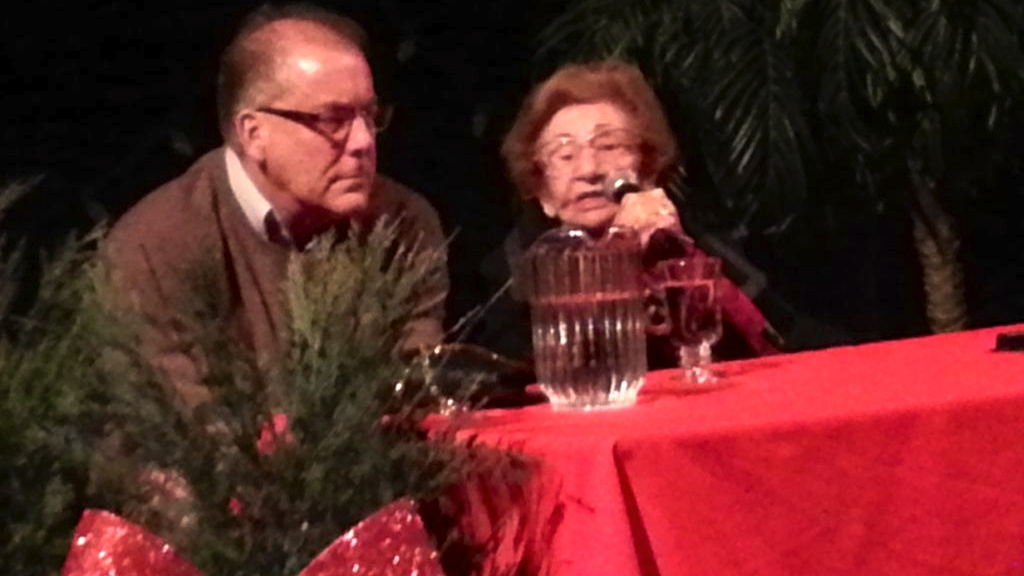Holocaust survivor Rose Beal urged an audience of hundreds of Boise High School students to stand up for human rights and to fight injustice wherever they see it.
During an hour-long assembly Monday, Beal recounted her struggle to escape Hitler’s Nazis after the Gestapo secret police stormed her family’s Frankfurt apartment and deported them to Poland.

“Once you get your human rights violated there is no going back,” Beal said. “Make the injustice visible … talk about it, point it out.”
Beal was 11, living with her younger brothers and mother, when Hitler came into power in Germany.
“Everything changed for us,” Beal said. “I remember the day because my grandmother, who was living with us, cried all day long.”
Beal’s family was a part of the same middle-class Jewish community in Frankfurt as Anne Frank. With Hitler in power, Jews – many of whom had fought for Germany in World War I – were stripped of their citizenship, saw their bank accounts frozen and lost their jobs.
“Overnight, we become sort of nonpersons,” Beal said. “Anybody could do with us what they wanted.”
Although her mother obtained affidavits meant to secure a trip from Germany to America, bureaucratic red tape prevented the Beals from leaving.
A little while later, police and a Gestapo officer stormed Beal’s house in the middle of the night and forced the family onto trucks and later onto dirty, cramped trains bound for Poland. Beal saw people who dared to speak out beaten and women crushed among the crowds of deportees.
The Beals returned to Germany, where they witnessed the horror of Krystallnacht, or Night of Broken Glass in 1938.
“We heard the noise and looked out the window and saw small groups of men with iron bars … smashing windows, going into houses, throwing furniture into the street,” Beal said. “We were sitting at the dining table holding hands and my mother kept saying, ‘At least we’re all together.’ Really what that meant is if they were going to kill us, they would kill all of us.”
The family survived that day and the next night, although nearly every Jewish man between 16 and 60 was captured and sent to concentration camp, Beal said.
By April 1939, the Beals were able to secure a ticket to America just after Hitler invaded Czechoslovakia and the country was bracing for World War II.
After a 12-day voyage from France, Beal and her family arrived in New York Harbor with just $2.50 to their name. Later, Beal learned that of the 17,000 Jews deported to Poland, her family was among about just 200 who survived.
“I can still see it: there was the Statue of Liberty,” Beal said. “We were crying, we were laughing and we knew we were finally, finally free.”
Students, who gave Beal a long standing ovation after her speech, said her appearance was a powerful way to bring the lessons of their history books to life.
“We learn a lot about civil rights in class and there are so many films about the Holocaust, but you don’t get a lot of the raw emotional detail you got from the speech,” junior AP student Samantha Mooney said. “It was very vivid.”
After the presentation students asked Beal how she learned to speak English so well (she learned in second grade in Germany), how she survived with no money (she earned $35 a month in America, enough to pay her rent) and whether she has returned to Germany (which she has, several times, including to see her old school after it re-opened in 2004).
They also wondered how long it took her to share her story.
“We didn’t talk about it until the 1980s, when the first Holocaust deniers’ books were written,” Beal said. “Then all of us said, ‘We’ve got to talk to schools and we’ve got to let the world know what really happened.’”
